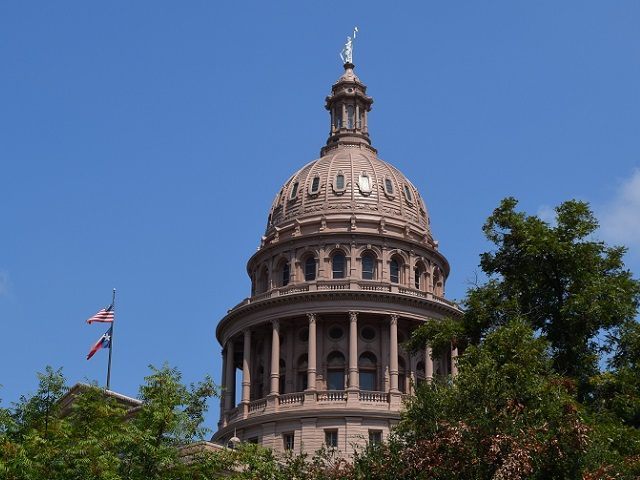The Texas Supreme Court heard opposing arguments in the much anticipated showdown between the state and 600-plus public school districts over public education finance reform on Monday.
Last August, Democrat District Judge John Dietz, from Travis County, condemned the state’s funding mechanism for public schools as unconstitutional, which Breitbart Texas reported. Earlier in 2014, he reopened the case (Williams v. Calhoun County ISD, et al.) following changes made by the legislature.
At yesterday’s hearing, the attorney general’s office spoke first on behalf of the state. Solicitor General Scott A. Keller and Assistant Solicitors General Rance Craft and Beth Klusmann argued that the court cannot fix school finance as that role belongs to the people through their publicly elected state officials. They said it is the legislative branch who has the duty to allocate taxpayer dollars and pass laws.
“This is a case about who gets to decide and who sets education policy in the state. Our argument is simple: it’s the people’s representatives. It’s the legislature,” said Keller. “The state’s interest here is (to) end this perpetual cycle of litigation.”
Public education spending accounts for more than one-third of general revenue and general-revenue dedicated funds. The Texas legislature has steadily addressed and revised public education funding, allotting resources and strengthening education policy, according to the state.
“For more than three decades, school finance in Texas has been mired in lawsuit after lawsuit, filed by those attempting to use the courts to accomplish what they couldn’t accomplish through the legislature,” said Attorney General Ken Paxton later in a statement obtained by Breitbart Texas.
“In fact, a child who started kindergarten in 1984, the year this rash of lawsuits began, would be 36 years old today – 18 full years out of high school. Throughout it all, one thing has remained true: this issue is best dealt with by the legislature, the elected representatives of the people of Texas, and not by the courts. Texas education must be about properly educating students, not endlessly battling in court,” Paxton continued.
During the hearing, the state asserted there is no real way to determine the constitutionality of current public school funding because of more recent changes. These include the shift to the use of the State of Texas Assessments of Academic Readiness (STAAR) and taxpayer dollars pumped back into the public education system.
The state met resistance from attorneys representing more than 600 public school districts, charter schools, and even business community special interests, who claimed funding was inadequate” and unfairly distributed.
Charter schools said that the state discriminated against them as they receive less per pupil funding and no money for facilities. Charters claim this forces them to “cannibalize” their education taxpayer dollars to pay for brick-and-mortar school venues. Open enrollment charters are part of the public education system.
Attorney Craig Enoch, who spoke on behalf of the business community, insisted the entire school finance system was so inefficient it should be declared unconstitutional, scrapped and restructured.
Earlier Keller noted,“Rather than issuing orders defunding Texas’ public school system to pressure the legislature to change the law, the Court should end this perpetual cycle of school-finance litigation.”
Public schools insisted that the state did not spend enough money for an ever-increasingly impoverished student population, and a burgeoning demographic who only speak English as a second language. Attorney Marisa Bono complained that these districts did not get the advantages of the students “who already live in the most advantaged school districts.”
Texas public schools lean heavily on property taxpayers for funding. These “advantaged” districts come with sizeable property tax bills but the state’s “Robin Hood” finance system ensures that property tax rich districts (i.e., those with high property values or plentiful tax-collected coffers) give some of that taxpayer money back to the state. The state then funds those impoverished districts. The federal government also funds Texas public schools through taxpayer dollars.
Bono claimed the school funding mechanism produces tens of thousands of high school graduates that enter the workforce “who are wholly unprepared.”
Attorney Wallace Jefferson, who represented large districts, similarly argued that the state legislature failed to create a finance system that meets its goal of churning out college or career ready high school grads.
Fort Bend ISD attorneys also accused Texas public education of not preparing students for the 21st century. The attorneys said that the kids cannot pass a first-year college course.
That is not endemic to the state of Texas. Breitbart Texas reported that today’s college and career ready (CCR) learning environment appears to net an incoming U.S. college freshman population that can only read at a seventh-grade level.
The school finance reform case was prompted by the legislature cutting $5.4 billion out of the education budget in 2011 during recessionary times. Two years later, the 83rd legislative session restored $3.4 billion of that funding.
This is the seventh time school financing litigation was filed against the state. A new law (SB 455) authored by State Senator Brandon Creighton (R-Conroe) may make it the last. SB 455 takes total control away from one liberal Travis County judge who “had the power to dictate the outcome” on constitutional issues including school finance reform. Under SB 455, the judge originally assigned to a case will remain on an expanded three-judge panel to better represent constituents statewide. The bill was signed into law by Texas Governor Greg Abbott and became effective this week.
There is no deadline for the court to render a decision on the constitutionality of how public schools are funded in Texas. A ruling remains possibly months away.
Follow Merrill Hope on Twitter @OutOfTheBoxMom.

COMMENTS
Please let us know if you're having issues with commenting.